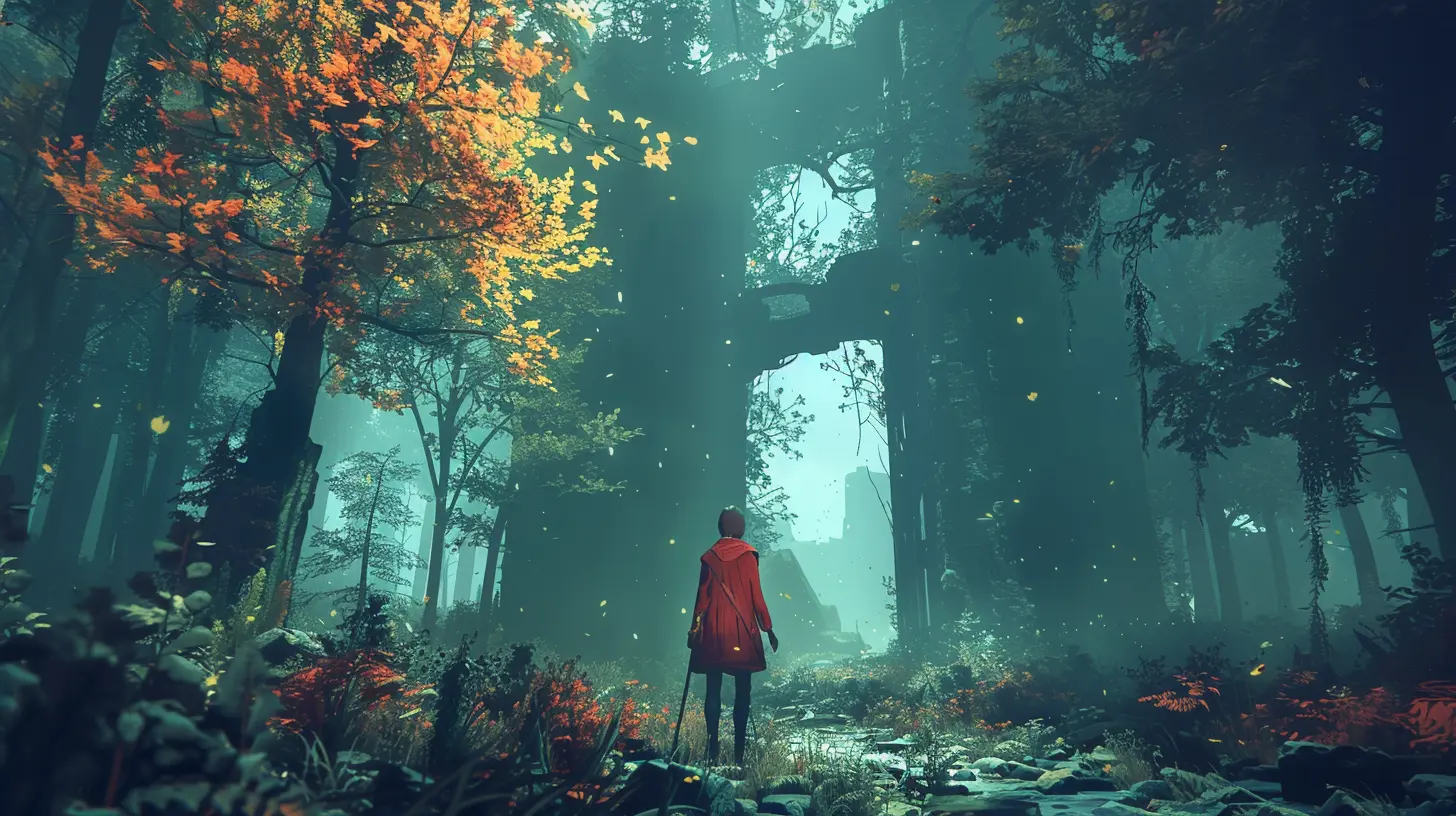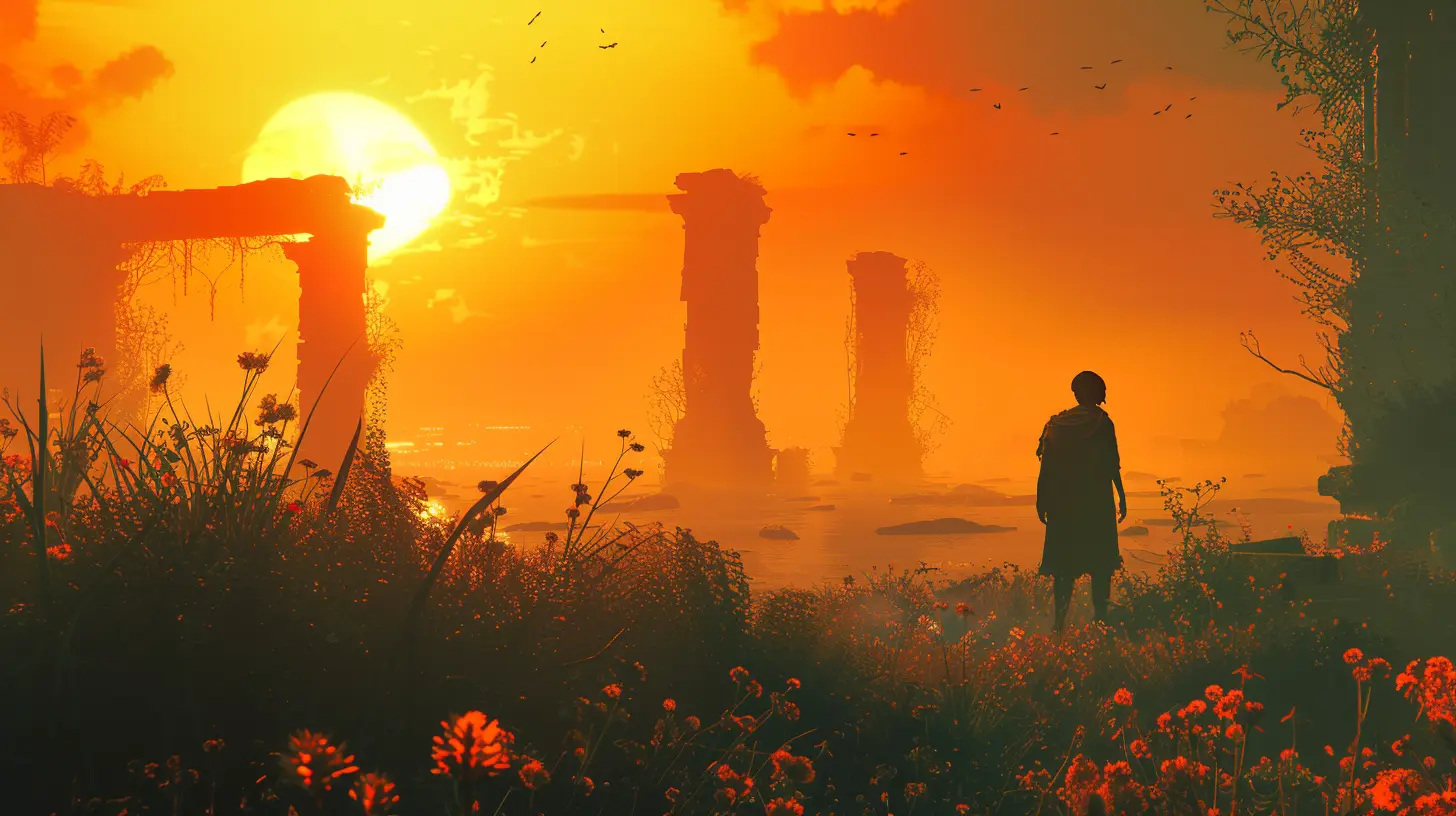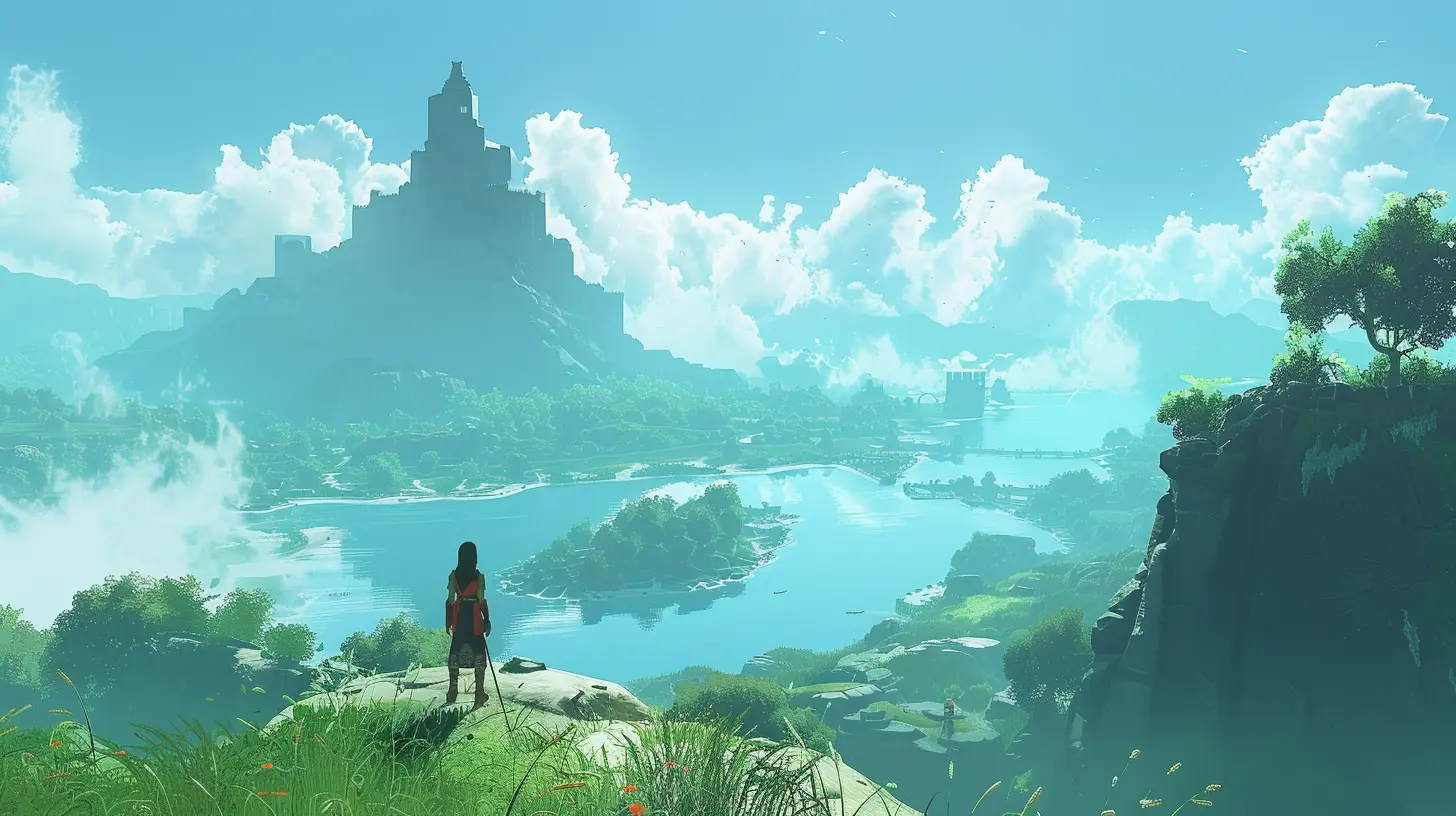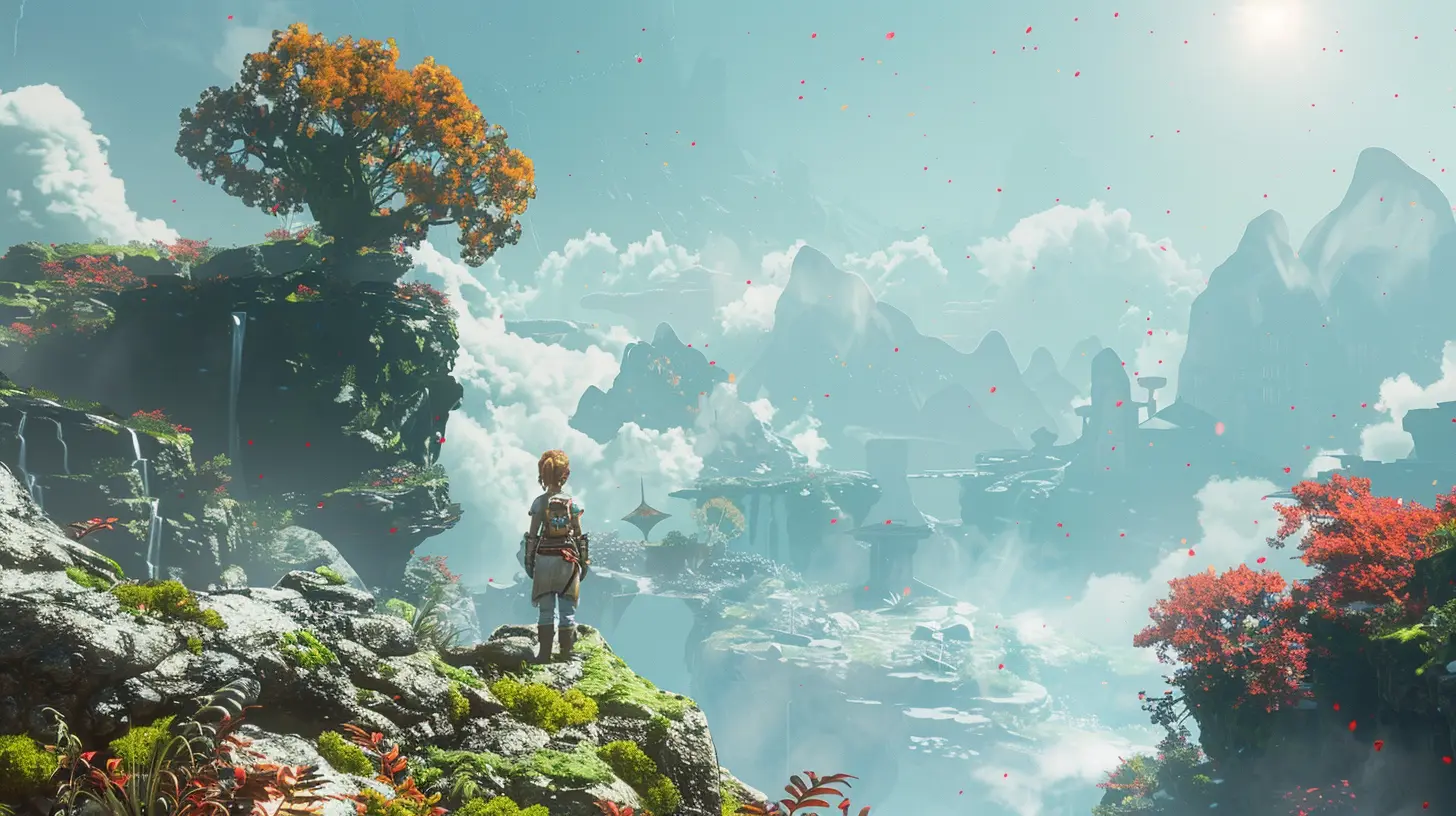Can Early Exploration Keep You Hooked in This Adventure?
21 October 2025
Have you ever booted up a brand-new game, controller in hand or WASD-ready, and within minutes found yourself totally immersed—not because of the story or combat, but just by wandering off the beaten path? If that sounds familiar, you’re definitely not alone.
Today, we’re diving into a topic that hits close to home for many gamers: “Can early exploration keep you hooked in this adventure?” Whether you're trekking through the sands of Assassin’s Creed Origins or poking around hidden nooks in Elden Ring, the urge to explore early says a lot about game design—and about us as players.
So grab your gear. We’re going on a thoughtful journey through virtual landscapes, and trust me, it's going to be worth the XP.
Why Exploration Matters More Than We Think
Before we talk specifics, let’s ask something basic: Why do we explore in games at all?Sure, there's loot. Maybe an NPC with a quirky side quest. Maybe that sweet, sweet rare gear. But it’s more than that. Exploration feeds our curiosity. It’s that same spark we had as kids walking into the woods behind our house (even if it was just a patch of trees).
Video games capitalize on that primal itch. From JRPGs to open-world epics, devs who encourage early exploration tap into a player’s sense of wonder right away. And that, my fellow gamer, is the secret sauce for long-term engagement.
The First Hour: Where Magic Happens
Let’s talk about the first hour of gameplay. You’ve just started. The music swells. You’ve maybe watched a prologue or fiddled with character customization. Then boom—you’re dropped into the world.Now here’s the kicker: if the game gives you a small carrot—like a cave off the path, a glowing relic in the bushes, or a climbable cliff in the distance—you’re likely going to chase it. And once you do, you’re in the game’s grip.
That early win, or even that early mystery, becomes a mental bookmark. It tells you: “Hey, there’s something world-shattering out here if you just look around.”
Games like Horizon Zero Dawn and Breath of the Wild absolutely nailed this. They didn’t just tell you what to do—they let you choose what to do, and rewarded curiosity.
Now ask yourself: isn’t that way more memorable than a tutorial pop-up telling you how to swing your sword?
Curiosity is the Hook, Exploration is the Line
When a game lets you poke around early on, it’s offering you a choice: follow the golden path, or go off-script.And while the main story will always be there waiting, those who choose the scenic route often form a much deeper connection to the world. Why? Because they earned those moments. They weren’t handed to them.
Think about it: who remembers beating the first boss? Okay, probably everyone. But who remembers stumbling upon that abandoned village full of eerie notes and hidden lore that wasn’t even quest-related? Those are the things that stick.
Games become living, breathing worlds when we feel like we’re discovering them instead of just playing them. And early exploration is often the first time we get to feel like an actual part of the world.
Open Worlds and Sandbox Dreams
Now, let’s be real. Not every game is made for early exploration. Linear games—platformers, story-driven paths—keep things tight on purpose. But man, when you get into an open-world or sandbox game? That’s a whole different ballgame.Let’s use The Elder Scrolls V: Skyrim as the OG benchmark here. You can ignore the main quest entirely and just walk into the mountains. Do you stumble into a dragon fight? Maybe. Or a random bard who writes cheesy poems? Also possible.
Point is: games like Skyrim, Witcher 3, and Red Dead Redemption 2 encourage you to go off-script as early as possible. They reward you with environments that tell stories on their own, and those rewards make you want to stay longer.
It’s like walking into a theme park but being told you’re allowed to go behind the attractions and see the magic behind the curtain. Who wouldn’t want to peek?
Exploration Builds Emotional Investment
Here’s something devs and veteran players already know: when players invest time early on exploring, they get emotionally invested faster.Think about it. You’ve named your horse. You’ve chosen your path up the mountain instead of the suggested road. Maybe you even helped a random villager fix his roof. None of this was mandatory—but you did it.
And now? You care.
So when the story eventually tells you that this village is under threat, it hits harder than any scripted cutscene ever could.
You built a little world in your head, and now you’ll fight to protect it. That, right there, is why early exploration can make or break a game’s hook.
The "Reward Loop" of Discovery
Let’s touch on psychology for just a sec—don’t worry, no textbook required.Any game that nails exploration also understands reward loops. This is the way your brain goes “Ooh!” when you find something cool, like a hidden chest or hidden piece of lore. The more you poke around and find stuff, the more your brain associates exploring with winning.
Even small wins—like finding an easter egg under a rock—keep you coming back. And quality games don’t just hand you these moments. They make you work for them. That little bit of effort makes the payoff feel so much sweeter.
It’s kind of like finding $5 in your old jeans. No one told you it was there, right? That’s what discovery feels like.
Crafting the Perfect Environment
Creating a world that invites exploration is an art form. Game designers have to think like storytellers, psychologists, and set decorators all at once.They ask questions like:
- Will players notice that crumbling bridge?
- Should we place a shiny light at the top of that hill to draw the eye?
- What if the forest sounds different near a hidden cave?
Subtle cues like lighting, sound design, and environmental storytelling are master tools in this craft. And when used properly, they don’t just say “Go here!” They whisper, “What if there’s something amazing just around this corner?”
And we, the players, lean in and listen every time.
The Flip Side: When Exploration Fails
Of course, not all exploration is equal.Sometimes a game promises a rich world but delivers empty spaces. You explore, but find nothing but pretty visuals and repetitive encounters. This is what we call false reward.
When that keeps happening early on, you start to pull back. You lose trust in the game. You stick to the main quest. You play the game, but you don’t immerse in it.
That’s why it’s crucial for developers to get exploration right early. Because rebuilding that trust later is like gluing a cracked vase—it might hold water, but it’ll never feel the same.
Player Freedom = Player Ownership
Here’s a spicy take: early exploration doesn’t just keep you hooked—it gives you ownership over the experience.When you explore on your own terms, you start to shape your individual journey. You remember how you took down that hidden boss, or how you found the secret NPC with the haunting backstory.
You talk to friends and realize they completely missed that part. Suddenly the game feels unique to you. That’s powerful.
And that kind of personal storytelling? It beats even the flashiest trailers or the most dramatic plot twists. It keeps players talking, sharing, playing.
Final Thoughts: So, Does Early Exploration Hook You?
If you're still with me, you probably already know the answer.Yes—early exploration absolutely keeps players hooked. Not because it’s mandatory, but because it taps into something deeper: our craving for discovery, for immersion, for connection.
Games are more than just objectives and boss fights. They’re playgrounds for the curious. And when a game invites you to explore early? It’s not just letting you play—it’s letting you live in its world.
So next time you boot up a new quest and see a path slightly off to the side, take it. Go check out that weird tower in the distance. Who knows what stories are waiting for you?
The adventure always starts with a choice—and sometimes, the best ones aren't marked on the map.
all images in this post were generated using AI tools
Category:
First ImpressionsAuthor:

Tayla Warner
Discussion
rate this article
1 comments
Blaze Strickland
Absolutely! Early exploration ignites curiosity and fun!
October 22, 2025 at 3:52 AM

Tayla Warner
Absolutely! Early exploration fuels curiosity, making the adventure even more engaging.


